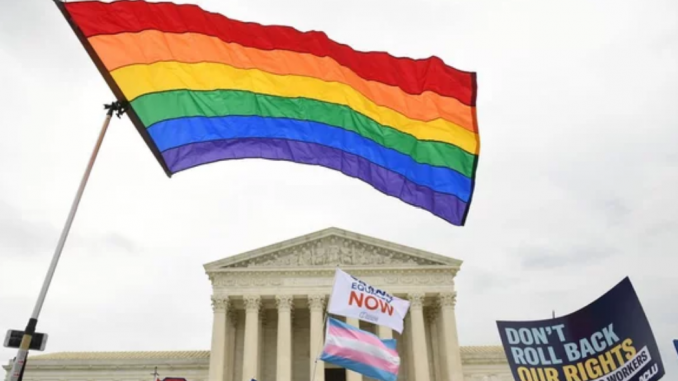
A federal appeals court on Tuesday ruled that an elementary school principal in South Carolina did not violate the Constitution by refusing to include a fourth-grader’s essay advocating for LGBTQ rights and equality in a booklet of student essays that were copied and circulated throughout the school and students’ homes.
The student’s mother filed a lawsuit on behalf of her daughter (referred to in the Opinion as R.S.S. because she is a minor), claiming that Anderson Mill Elementary School in Spartanburg County and its principal violated her right to free speech.
A three-judge panel on the U.S. Court of Appeals for the Fourth Circuit reasoned that Principal Elizabeth Foster’s decision to bar the essay from the compilation did not infringe on the student’s First Amendment rights because it was “reasonably related to a legitimate pedagogical concern[].”
Writing for the court, Judge Stephanie Thacker, an appointee of President Barack Obama, explained that school officials may exercise “editorial control” over the content of student speech if it is directly related to a school-sponsored activity and the control is “reasonably related to legitimate pedagogical concerns.”
Essentially, First Amendment precedent dictates that a school can regulate student speech, provided that such speech can reasonably be construed as being a publication of the school or part of its curriculum. The court sided with the school, holding that the assigned essay fit the definition of school-sponsored student speech.
“To begin, it was school officials — most notably, R.R.S.’s fourth grade teacher — who decided to compile the fourth grade students’ essays into a booklet and send copies of that booklet home with the students for their families to read. It would be reasonable, then, for the students’ families to view the essay booklet as bearing the imprimatur of Anderson Mill Elementary School and the School District,” Thacker wrote. “Additionally, R.R.S. wrote the LGBTQ-themed essay to society pursuant to a school assignment that was supervised by both the fourth grade teacher and Principal Foster. Clearly, the essays were part of the Anderson Mill Elementary School fourth grade curriculum.”
The court similarly held that Foster’s decision was based on “legitimate pedagogical concerns” because the booklet was placed in every fourth-grade classroom and sent home to parents.
“[W]hile reasonable minds could debate the pedagogical efficacy of shielding fourth graders from topics like sexuality and gender identity, it cannot be denied that maintaining the age appropriateness of school-sponsored expressive activities is a pedagogical concern,” Thacker wrote. “Similarly, this court has recognized that ‘it is not a court’s obligation to determine which messages of social or moral values are appropriate in a classroom. Instead, it is the school board, whose responsibility includes the well-being of the students, that must make such determinations.”
The court also rejected the contention that Foster’s decision violated principles of viewpoint neutrality.
“None of the justifications that Appellant attributes to Principal Foster’s initial refusal to include R.R.S.’s LGBTQ-themed essay in the fourth grade class’s essay booklet — i.e., her concern about the age-appropriateness of the essay and her fear that the essay’s subject matter would anger the families of fourth grade students — suggest that the restriction had anything to do with the content of R.R.S.’s essay,” Thacker wrote. “On the contrary, these justifications illustrate that Principal Foster was averse to the subject of LGBTQ rights appearing in the essay booklet.”
*story by Law & Crime


